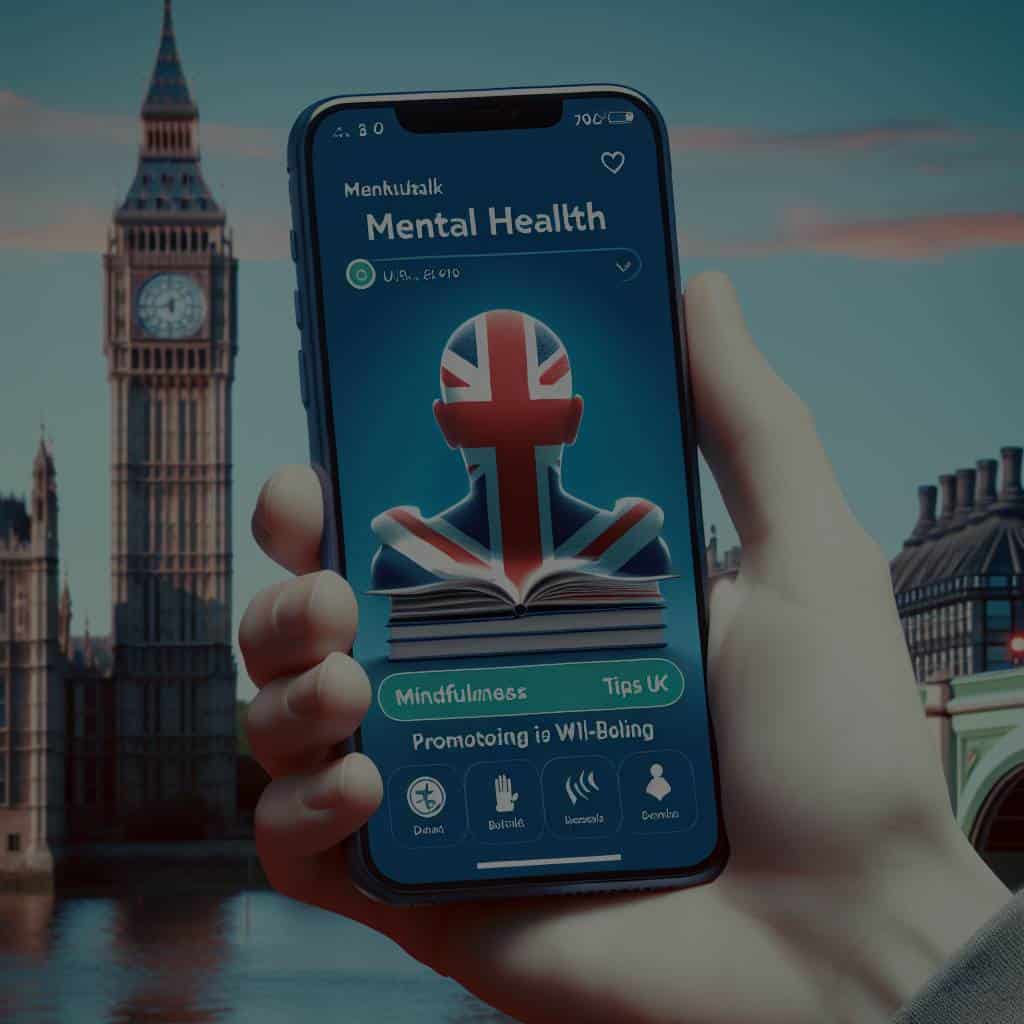In a world where our mobile phones have turned into an extension of ourselves, it’s no surprise that app developers worldwide are leveraging this opportunity to help people take care of their mental health. By addressing a range of issues from anxiety to mood swings, these apps deliver support and care when and where users need them. We will explore how mental health apps, tailored explicitly to UK users, can promote well-being within this demographic.
The Rise of Mental Health Apps
Welcome to the era where therapy is at the tip of your fingers. Mental health apps are becoming increasingly popular among UK health-conscious users, seeking to improve their well-being. It’s not just about fitness anymore; mental health is considered just as important, if not more so.
Topic to read : What Are the Best Practices for Cybersecurity in UK Small and Medium Enterprises?
These apps use data analytics and machine learning algorithms to personalize the user experience, offering features that address specific mental health conditions. Whether it’s managing anxiety, improving mood, or providing support during a mental health crisis, these mobile applications can often provide immediate care.
Google Play and the App Store are flooded with health apps, many of which have been developed with UK users in mind. These apps have been designed to understand the unique cultural, societal, and individual pressures that UK residents face, thereby providing relevant and much-needed support.
In the same genre : How Are Urban Farms Contributing to Sustainable Food Systems in British Cities?
The Well-Being Benefits of Using Mental Health Apps
Mental health apps offer features that can supplement traditional therapy and psychiatry, extending the benefits of mental health care to a wider range of people. These apps can provide instant support, helping the user manage anxiety and other conditions in real time.
One of the biggest advantages of these mobile solutions is their accessibility. They are available 24/7, allowing users to seek help whenever they need it, unlike traditional therapy, which is often restricted by time and location.
These apps also provide a sense of anonymity, which can be crucial for users who may feel stigma or embarrassment about seeking help. This feature can foster a sense of security and encourage more people to seek help.
Customizing Mental Health Apps for UK Users
As we delve deeper into the world of mental health apps, it becomes evident that customization is key. No two people are the same, and therefore, no two mental health journeys are identical. This individuality extends to cultural experiences, societal pressures, and the unique mental health landscape within different countries, including the UK.
Localizing mental health apps for UK users means more than just language translation. It means understanding the unique challenges faced by UK residents and providing relevant resources and support. This might include links to local mental health services, advice on dealing with common stressors within UK society, or information on UK-specific mental health legislation and rights.
App developers are now recognizing this need and are tailoring their features to cater to UK users. From offering features that help manage anxiety related to job insecurity in post-Brexit Britain, to providing support for those dealing with the pressures of London’s fast-paced lifestyle, these apps are becoming more sensitive to the specific needs of their UK users.
Data-Driven Mental Health Support
In the era of big data, mental health apps are leveraging information to provide personalized care and support. By analyzing user data, these apps can identify patterns in mood and behavior, predict potential crises, and offer proactive support.
For instance, an app might notice a correlation between a user’s reported mood and the amount of time they spend on social media. The app could then offer strategies to manage this potential source of anxiety.
While data privacy is a concern, many mental health apps prioritize user confidentiality and adhere to stringent data protection regulations. These apps’ ability to provide personalized, data-driven support makes them a valuable tool in the mental health care toolkit.
The Future of Mental Health Care in the UK
The rise of mental health apps tailored for UK users signals a shift in how mental health care is being delivered. With their customizable features and data-driven support, these apps offer accessible and personalized mental health care solutions.
As technology continues to advance, the role of these apps in mental health care will likely continue to grow. Whether it’s integrating with other health care services, using artificial intelligence to provide real-time support, or leveraging virtual reality for exposure therapy, the possibilities are virtually endless.
The use of mental health apps does not replace traditional therapy but complements it, bridging the gap between sessions and making mental health care more accessible and immediate for UK users. As we continue to break down the barriers to mental health care and prioritize well-being, these apps are paving the way for a healthier future.
While the journey to mental well-being is profoundly personal, mental health apps tailored to UK users are proving that technology can play a significant role in promoting mental health and well-being.
Personalised Mental Health Interventions for UK Users
With the increasing popularity of mental health apps, developers have taken personalised mental health interventions to the next level. Every individual has a unique set of circumstances, emotions, and reactions, which calls for a tailored approach to mental health care. This has been recognised by app developers, who are now delivering customised solutions to cater to the specific needs of UK users.
Tailoring includes understanding the psychological makeup, lifestyle, societal influences and personal challenges of UK users. Recognising the impact of situations like Brexit or the fast-paced lifestyle of cities like London, some apps provide resources and tools to manage anxiety and depression associated with these experiences. For example, meditation and mindfulness exercises tailored to help manage the stress of commuting in a busy city, or cognitive behavioural therapy techniques to deal with job insecurity.
Through evidence-based practices, these mental health apps provide tools and techniques that are scientifically proven to help manage mental health conditions. From guided meditations and mindfulness exercises to cognitive behavioural therapy, these apps offer a variety of resources that can be accessed at the user’s convenience, offering a sense of control and autonomy over one’s mental health journey.
Apps can also connect users to local mental health services, raising awareness about available resources and reducing the stigma associated with seeking help. By integrating location-based services, the apps can help users navigate to the nearest mental health clinic or connect them with a local mental health professional, facilitating accessible and immediate support.
Evidence-Based Mental Health Apps: Systematic Review and Quality Assurance
As the number of mental health apps on the Google Play and App Store continues to grow, it’s crucial to ensure that the resources provided are reliable, accurate, and effective. A systematic review of these apps can help users choose the ones that are best suited to their needs, based on their effectiveness and quality assurance measures.
Most reputable mental health apps use evidence-based practices, which means that the tools and resources provided are backed by scientific research. These apps often collaborate with mental health professionals during the development process, ensuring that the content is accurate and reliable.
Quality assurance is another critical aspect. Users need to know that their data is safe and that the app adheres to data protection regulations. The best mental health apps undergo regular audits and updates to ensure that they maintain high standards of data security.
In addition, user reviews and ratings on the Google Play and App Store can provide insight into the app’s effectiveness and user experience. Users can also refer to scholarly resources like Google Scholar to access research about the effectiveness of mental health apps.
In Conclusion: Embracing the Digital Age of Mental Health Care
Mobile apps are revolutionising the way mental health care is delivered in the UK. By tailoring their services to meet the unique needs and experiences of UK users, these applications are providing valuable support and resources to help manage mental health issues.
The digital age is making mental health care more accessible, immediate, and personalised than ever before. Although these apps are not meant to replace traditional therapy, they complement it by offering immediate and personalised care in between sessions and reaching out to those who might otherwise not seek help.
By prioritising data security and sticking to evidence-based practices, mental health apps are becoming a trusted resource for many UK users. The societal acceptance and popularity of these apps indicate a positive shift towards acknowledging mental health issues and seeking help when needed.
In the future, we can expect these apps to continue advancing, using artificial intelligence and integrating with other health care services to provide even more personalised and immediate care. As we continue to embrace technology in health care, mental health apps tailored to UK users are poised to play an essential role in promoting mental well-being.






